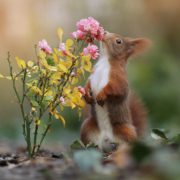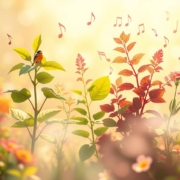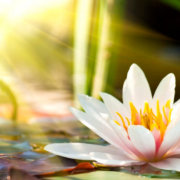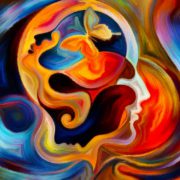Philosophy of perfume (part 2): The language of scents
There is a language of scents based on olfactory archetypes. A basic, instinctive, deep, and compelling language in which meanings are emotions.
How do smells get associated with emotions? Through our olfactory memory. This is the mechanism, they are memorized with the emotions that were experienced with it.
It is a very primitive process that excludes the intellectual part of the brain.
This is the part of olfaction that we share with animals, we identify and memorize smells as being simply good or bad in function of the emotional context in which they are perceived. Often with basic emotions such as fear, hunger, anger, joy, satisfaction, love…
This is why we may love some smells that other people hate because we lived opposite experiences with these scents.
Whenever smelled again, odors will reawaken the emotions associated with them in our memory so that we can identify the meaning that they bear for us in absolute terms of being good or bad, pleasant or unpleasant.
Each individual, his experience of life will make some smells awaken positive or negative emotions. These are the olfactory memories individually acquired.
This explains also why some smells entirely disgusting to Americans are lovely to Chinese. Or why French cheese stinks to all others than French people.
They have been memorized as “good” since childhood because they accompanied positive emotional situations. These are called olfactory memories acquired through a culture, mostly a culinary one. They are olfactory memories culturally acquired.
Did it occur to you that the odors that we never smelled might be as important for awakening emotions as those that we have experienced and memorized?
The proof is in a simple experiment. Have a newborn baby smell different essences by approaching scented strips to his nose.
You will see his face expressing all sorts of sentiments, from pleasure to disgust, because the smells evocate memories that he has inherited.
These are the olfactory memories congenitally inherited. This is my personal hypothesis in the field of olfactory research. The existence of such a memory is understood by the fact that smell perception, the chemical sense, is fundamental in the process of learning for all living organisms, and the process of learning is fundamental to survival.
When does a smell become an olfactory archetype? When an odor acquires a significant emotional value for a large enough number of persons for a long enough period, it becomes an olfactory archetype. Some of them are antique, like the smell of fire or of the sea; some are new, like the smell of kitchen gas or cinnamon.
Some are natural, like pine or rose and some are artificial, like vanillin used in the baby’s talcum powder for 5 generations.
Some archetypes that were only local to some regions of the world have spread all over the planet, either through trade or through acclimation of the plants that produce them. For instance, Cinnamon that originates in hot countries of the southern hemisphere has spread with commerce to all countries, particularly in the northern regions where it would never grow, but where it is extremely useful for its medical properties against the diseases of cold. Cinnamon has become the archetype of spices because it is used to aromatize the best and noblest of all foods, the sweets. It symbolizes the sunny exotic countries but also the security of home and family. The smell of Cinnamon is a little bit like traveling with Alpitour, adventure but in all security.
Oranges never grew in the cold weather countries, but through the diffusion of soft drinks and sweeties, its aroma has become the archetype of fruit all over the world as far as Lapland, supplanting the apple, which was in the past the symbol of fruit, because it was so widespread in all climates, so sweet and so perfumed. A basket of apples can perfume a whole room.
In modern times, sweetness is much less rare and defining quality of the fruits as it was a few generations ago. In the past, only fruits were the sweet common food. Sugar did not exist. Today’s orange soft drinks are much sweeter than apples, much more perfumed and in the meantime, agronomic selection has made apples more beautiful than they once were, but also much less perfumed. This is how archetypes can die and others are born.
The existence of an olfactory language based on our scent memories is the reason why fragrances composed of natural essences make perfume with meaning, not just smells.
They can narrate human stories, make us live emotions and they have a dimension that perfumery’s chemical new molecules, alien to our memories do not have.
These are just smells without emotions and they have become synonymous with perfume. This is why, as natural perfumers, we find often people shocked by smelling our perfumes. They expect just a smell and they are overwhelmed by an avalanche of emotions.
This is the second way in which natural ingredients of our perfumes are different from synthetic ones and how they generate a philosophy of perfume, simply because natural scents have a meaning for us.
Philosophy of Perfume (part 1): Bases for a revolution
Philosophy of perfume (part 2): The language of scents
























Leave a Reply
Want to join the discussion?Feel free to contribute!